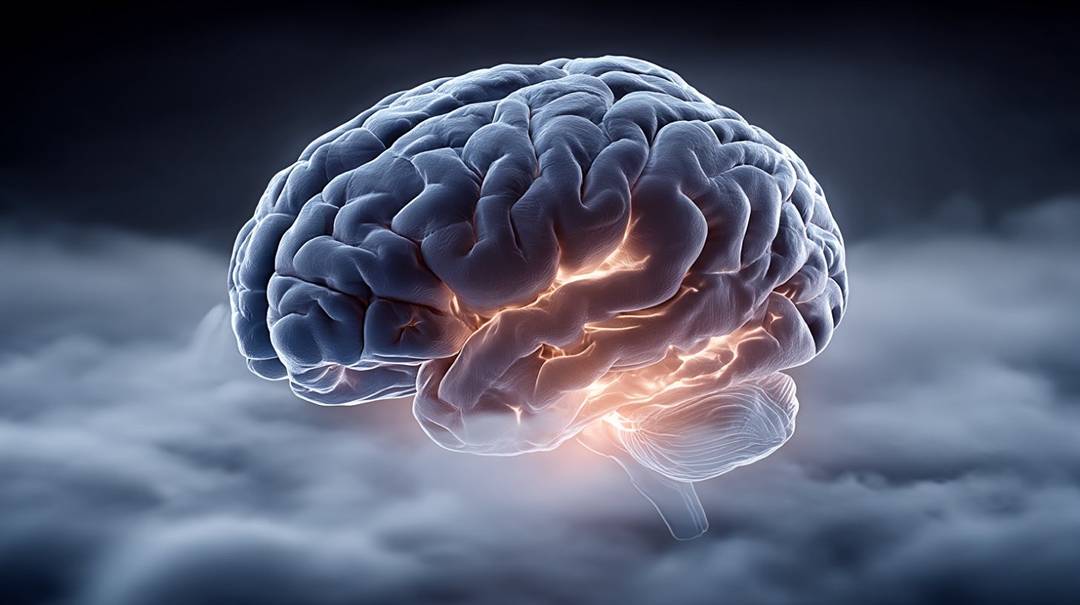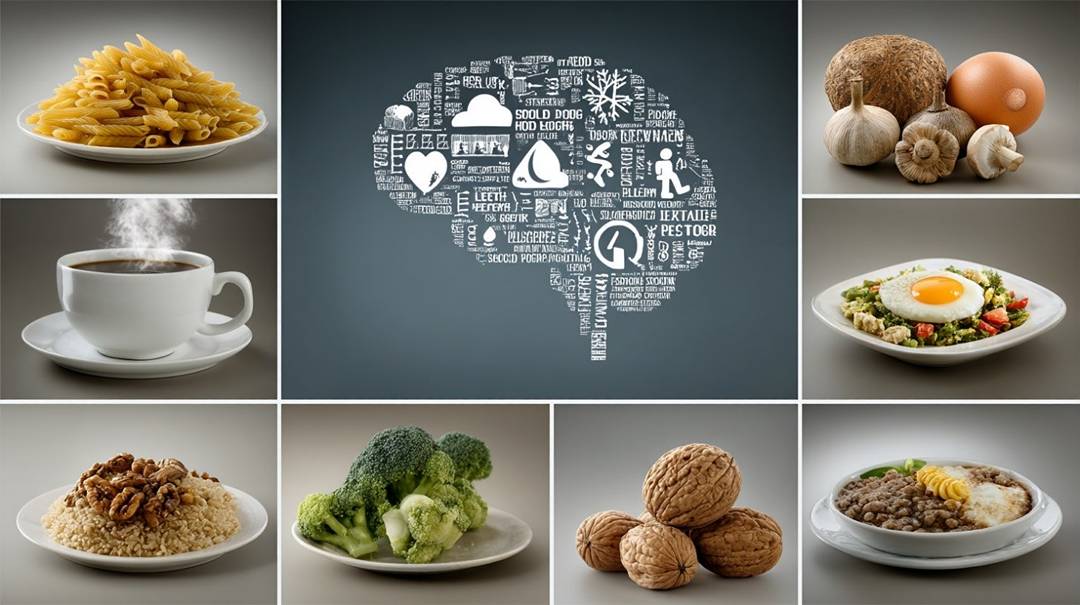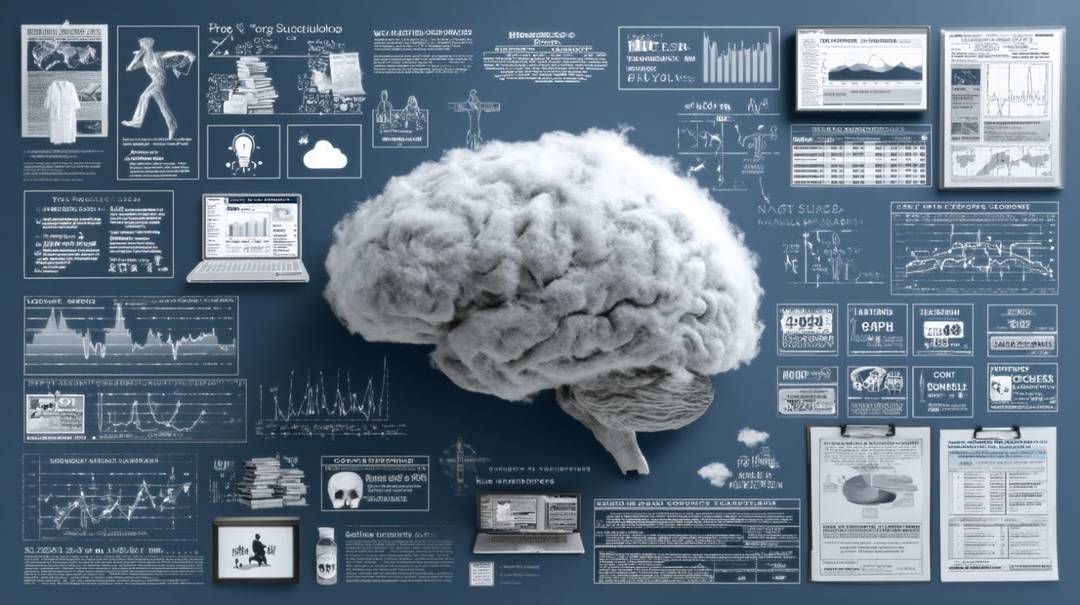
Brain Fog and Cognitive Decline: Causes, Symptoms, and Solutions
Have you ever walked into a room and forgotten why you were there? Or struggled to recall a familiar name mid-conversation? These frustrating moments of "brain fog" are more than just normal forgetfulness - they're often a sign that your brain isn't functioning at its best. Brain fog and cognitive decline can stem from a surprising mix of causes, from everyday stress and poor sleep to underlying medical conditions. The good news? Many of these triggers are reversible with the right knowledge and lifestyle changes.
Understanding Brain Fog and Cognitive Decline
Ever feel like your thoughts are moving through thick syrup? Brain fog isn't just occasional forgetfulness - it's a persistent lack of mental clarity that affects focus, memory, and decision-making. Unlike normal ageing, which may slow recall slightly, brain fog often signals an underlying issue, whether it's stress, poor sleep, or a nutritional gap. Recognizing the difference can help you take action before it impacts daily life.
What Brain Fog Feels Like
Patients describe it as "mental cotton wool" or "trying to think through static." Common symptoms include trouble concentrating, misplaced words, and feeling overwhelmed by simple tasks. In my clinic, I've seen patients who initially dismissed these signs as burnout - only to discover correctable causes like low vitamin B12 or thyroid dysfunction.
The Science Behind Cognitive Decline
Ageing naturally changes brain structure, shrinking the hippocampus (the memory hub) and slowing neurotransmitter production. However, lifestyle plays a bigger role than many realize. Chronic inflammation, for example, damages neurons, while poor blood flow starves the brain of oxygen. Emerging research even explores neuroprotective agents like Cortexin 10 mg, a peptide complex studied for supporting cognitive function in early-stage decline.
When to Seek Help
Occasional forgetfulness is normal, but these red flags warrant a doctor's visit:
- Forgetting recent conversations or appointments repeatedly
- Struggling with familiar tasks (e.g., following a recipe you've used for years)
- Family members expressing concern about your memory
Early intervention is key. Whether it's adjusting medications, optimizing diet, or exploring targeted therapies like Cortexin 10 mg, addressing the root cause can restore mental sharpness.
Root Causes of Brain Fog
Brain fog doesn't appear out of nowhere - it's your brain's way of signalling that something's off balance. While occasional mental cloudiness is normal, persistent symptoms often point to specific underlying issues that need attention. Understanding these root causes is the first step toward clearer thinking.
Nutritional Deficiencies: The Hidden Culprits
Your brain is a nutrient-hungry organ, and even minor deficiencies can impact its performance. Low levels of vitamin B12, vitamin D, iron, or omega-3 fatty acids are frequent offenders in cognitive dysfunction cases I've treated. These nutrients are essential for neurotransmitter production and protecting brain cells from damage.
The Stress-Cognition Connection
Chronic stress floods your body with cortisol, a hormone that can literally shrink the hippocampus - your brain's memory centre. Many of my patients don't realize how much their constant anxiety or work pressure is affecting their mental clarity until we address their stress management.
Common Physical Triggers
Several physical health issues frequently contribute to brain fog:
- Sleep disorders like apnea that prevent restorative rest
- Hormonal imbalances, including thyroid dysfunction
- Blood sugar fluctuations from prediabetes or poor diet
- Chronic inflammation from autoimmune conditions
The good news is that most of these causes are treatable. I've seen patients experience dramatic improvements in mental clarity simply by correcting a vitamin deficiency or getting their sleep apnea properly treated.

Lifestyle Factors That Accelerate Cognitive Decline
Your daily habits might be quietly sabotaging your brain health without you realizing it. While genetics play a role in cognitive function, research shows lifestyle choices often have an even greater impact on how quickly your brain ages. The choices you make today directly influence your mental sharpness tomorrow.
The Sedentary Brain
Sitting for prolonged periods harms your waistline and reduces blood flow to your brain. Studies reveal that regular aerobic exercise can increase the size of the hippocampus, the memory centre that typically shrinks with age. Even a daily 30-minute walk makes a measurable difference.
Dietary Enemies of Cognition
The standard Western diet, high in processed foods and sugar, creates inflammation that damages brain cells over time. What's particularly concerning is how these foods can impair the blood-brain barrier, allowing harmful substances to reach delicate neural tissue.
Common Lifestyle Pitfalls
These everyday habits significantly impact cognitive health:
- Chronic sleep deprivation (less than 6 hours nightly)
- Excessive alcohol consumption (more than one drink daily)
- Smoking or vaping nicotine products
- Social isolation and lack of mental stimulation
The encouraging news? Unlike genetic factors, these are all within your control to change. Small, consistent adjustments to your daily routine can dramatically slow cognitive decline and even reverse some symptoms of brain fog.
Medical Conditions Linked to Brain Fog
When brain fog persists despite lifestyle changes, it often signals an underlying medical condition needing proper diagnosis and treatment. Many patients are surprised to learn how various health issues can directly impact cognitive function, sometimes before other obvious symptoms appear.
The Thyroid-Brain Connection
Both hypothyroidism and hyperthyroidism can cause significant cognitive impairment. I've treated numerous patients whose "brain fog" completely resolved after we regulated their thyroid levels. The thyroid hormone directly affects neurotransmitter production and brain metabolism.
Autoimmune Disorders and Cognition
Conditions like lupus, multiple sclerosis, and celiac disease often cause brain fog due to systemic inflammation. In these cases, the immune system mistakenly attacks healthy tissue, including neural pathways, leading to noticeable cognitive difficulties.
Common Medical Causes
These health conditions frequently contribute to brain fog:
- Diabetes and blood sugar dysregulation
- Chronic fatigue syndrome
- Fibromyalgia
- Post-COVID syndrome (long COVID)
- Depression and anxiety disorders
What's particularly important is that treating the underlying condition often improves cognitive symptoms dramatically. Many of my patients experience significant mental clarity once we properly manage their primary health issues.

Diagnostic Approaches for Brain Fog
Pinpointing the exact cause of brain fog requires a systematic approach. As a clinician, I often start with a comprehensive evaluation because cognitive symptoms can stem from multiple overlapping factors. The right diagnostic strategy can mean the difference between temporary confusion and lasting solutions.
When to Seek Professional Help
Many patients wait too long before consulting a doctor about cognitive concerns. If brain fog persists for more than a few weeks or interferes with daily activities, it's time for professional evaluation. Earlier assessment often leads to better outcomes.
The Diagnostic Process
A thorough workup typically includes:
- Detailed medical history and symptom timeline
- Cognitive function assessments (like MoCA or MMSE tests)
- Blood tests for nutrient levels and metabolic markers
- Evaluation of sleep patterns and quality
- Neurological examination, when indicated
Specialized Testing Options
In complex cases, we may recommend advanced diagnostics like neuroimaging (MRI or CT scans), sleep studies, or specialized blood work for autoimmune markers. These help rule out serious conditions while identifying treatable causes.
Remember - there's no single "brain fog test." The diagnostic journey is personalized, just like the treatment plan that follows. What matters most is finding answers that lead to real cognitive improvement.
Evidence-Based Solutions to Combat Brain Fog
The good news about brain fog is that most cases improve significantly with targeted, science-backed interventions. Through my clinical practice, I've seen remarkable cognitive turnarounds when patients consistently implement these evidence-based strategies.
Nutritional Interventions That Work
Food truly is brain medicine. The MIND diet, a hybrid of Mediterranean and DASH diets, has shown particular promise in clinical studies for reducing cognitive decline. Key components include leafy greens, berries, nuts, and fatty fish rich in omega-3s.
Movement as Medicine
Regular physical activity boosts brain-derived neurotrophic factor (BDNF), a protein that supports neuron growth and connectivity. Both aerobic exercise and strength training show benefits, with research suggesting that 150 minutes weekly provides optimal cognitive protection.
Making It Last
The key to lasting results lies in making brain-healthy choices automatic. Pair new habits with existing routines, track your progress, and celebrate small victories. Most importantly, be patient - cognitive improvements often happen gradually.
Your brain's future isn't predetermined. With the right knowledge and commitment, you can maintain mental clarity and potentially reduce your risk of significant cognitive decline as you age.

Comments (0)